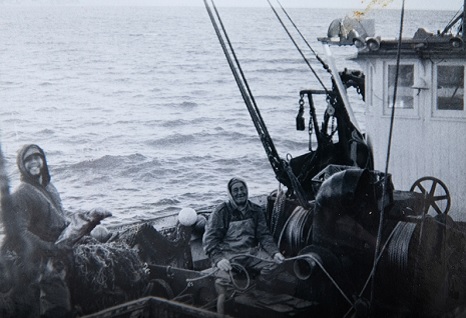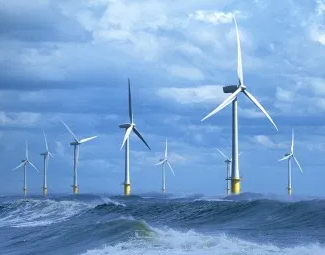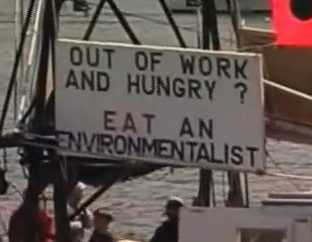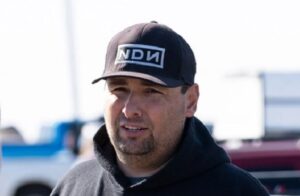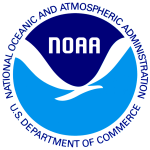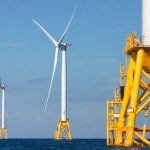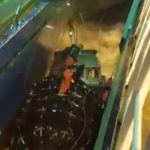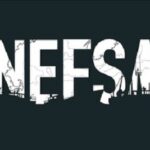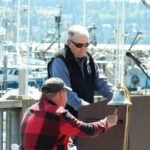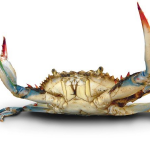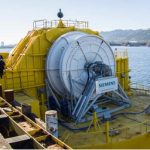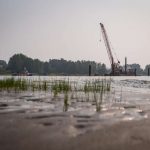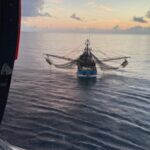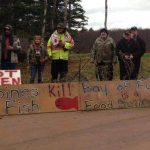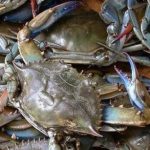Category Archives: Mid Atlantic
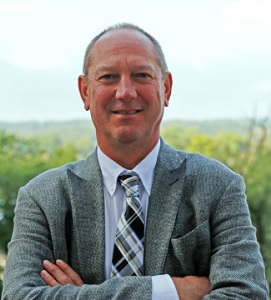
A message from Chris Oliver on National-Level Observer Waiver Criteria; Redeployment in Northeast To Begin
To improve transparency in our approach to observer deployment, we have established national-level criteria for vessels to be waived (released) from observer or at-sea monitor coverage. Going forward, observer or monitor coverage may be waived, for both full and partial-coverage fisheries, on a trip-specific basis if one of the following two criteria are met: (1) Observers or at-sea monitors are not available for deployment; or (2) The observer providers cannot meet the safety protocols imposed by a state on commercial fishing crew or by the vessel or vessel company on its crew. Within our limited authority, our efforts are intended to ensure observers and monitors are following the same safety protocols that fishermen are following. >click to read< 17:50
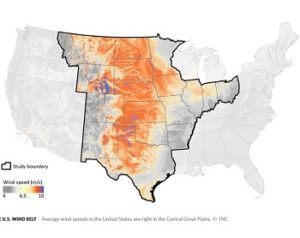
The U.S. “wind belt” – Map Shows ‘Low-Impact’ Locations for Wind Power
Wind energy developers both onshore and offshore face numerous challenges. Concerns about noise from wind turbines, disruption of visual aesthetics, and danger to wildlife have led to the cancellation or delay of several projects in recent years. The group’s analysis focused on finding land with high wind energy potential, but where impacts would be low to wildlife and the surrounding land. The Nature Conservancy partnered with organizations in each of the 17 states it studied, and gathered more than 100 data sets from conservation and land use organizations as well as state agencies. The group said more than 60 scientists worked to develop the siting map, with an eye toward helping developers avoid unsuitable sites. >click to read< 09:16
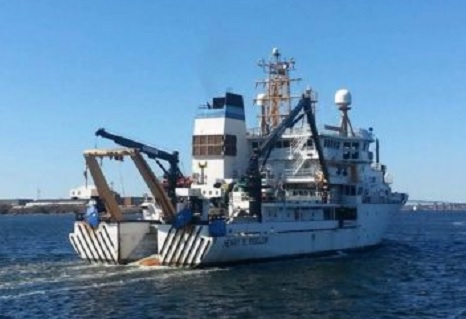
Coronavirus: COVID-19 and mandated on-board fisheries observers during the pandemic resurgence
The NOAA/NMFS “Navy’s” at-sea surveys in the Northeast region were cancelled at the beginning of the COVID-19 pandemic and will not be resumed for at least the remainder of this year. “Since March, we have been rigorously analyzing various options for conducting cruises this year and are taking a 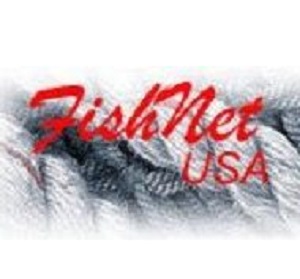 survey-by-survey, risk-based approach. After much deliberation, we determined that there was no way to move forward with these surveys while effectively minimizing risk and meeting core survey objectives,” according to officials at the Northeast Fisheries Science Center in a statement issued July 10.,,, But mandatory on-board observers pose no COVID 19 threat to commercial captains or crew?,, the mandatory on-board observers are scheduled to be back aboard commercial fishing vessels come August. >click to read< By Nils Stolpe, http://fishnet-usa.com/ 21:08
survey-by-survey, risk-based approach. After much deliberation, we determined that there was no way to move forward with these surveys while effectively minimizing risk and meeting core survey objectives,” according to officials at the Northeast Fisheries Science Center in a statement issued July 10.,,, But mandatory on-board observers pose no COVID 19 threat to commercial captains or crew?,, the mandatory on-board observers are scheduled to be back aboard commercial fishing vessels come August. >click to read< By Nils Stolpe, http://fishnet-usa.com/ 21:08
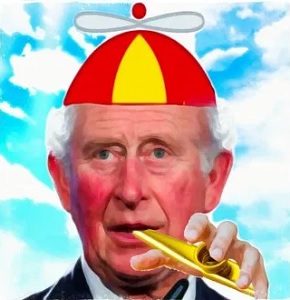
Prince Charles, sea lice, & why salmon farming sucks – Norwegian investors hope to delouse the salmon industry with new facility in Maryland
Business media worldwide have for weeks failed to mention that fact in amplifying a July 7, 2020 announcement that the Norwegian firm AquaCon plans to build a $300 million land-based salmon farm on the eastern shore of Chesapeake Bay. Sea pen salmon farms have worn out their nets, welcome, and often their investment return ratios from Puget Sound to coastal Scotland and Scandinavia. Factory-farming salmon in land-based tanks promises to avoid some of the issues afflicting the aquaculture industry. Land-based salmon farms, for instance, may be better able than sea pen farms to control the disease outbreaks and pollution that have become hallmarks of the land-based salmon industry. >click to read< 13:01
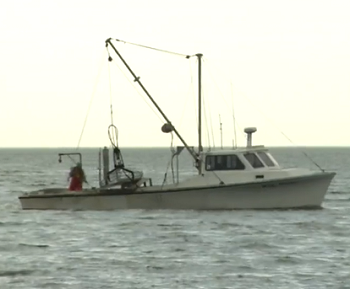
CARES Act grants available for watermen in Chincoteague
Watermen in Chincoteague can now apply for CARES Act funding. “It hurts. It’s hurt the seafood industry big time,” said waterman Eddie Watson. Mayor Arthur Leonard says the town has set aside $30,000 for up to six watermen. Those receiving the grants could possibly get $5,000 apiece. “What we’re doing is a very small step. I wish there was more that we could do. I know the federal government gave a lot of money. But that trickles down, so we are doing with what we have,” said Mayor Leonard. Watson says the money would be a huge help. video, >click to read< 11:45
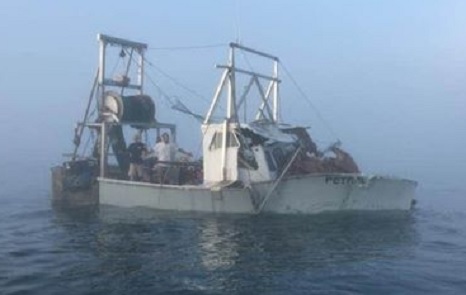
Fishing Dragger Struck and Sunk by recreational boat in dense fog near Montauk Inlet
Coast Guard Sector Long Island Sound received a report of a collision about a quarter-mile from the inlet at about 6:30 a.m. The commercial fishing vessel F/V Petrel, based out of Montauk, had been hit by the sailing yacht Chaos, a 40-foot powerboat, according to Petty Officer Anthony Pappaly, a Coast Guard public information officer. The crash occurred just north of the Bell buoy, where the commercial fishermen were getting ready to put out their net. The two people aboard the Petrel, the captain and his first mate, were taken aboard the Chaos as their boat began to sink into the harbor. Friends of the commercial fishermen said the other boat was going 30 knots, which is just under 35 miles per hour on the road. >click to read< 13:53
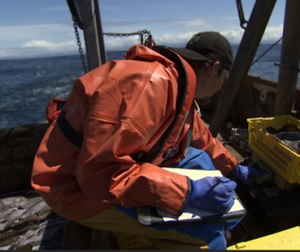
Fisheries across nation seeking monitor waivers
What began in the fisheries of New England has spread across the country. Fishing stakeholders from as far away as the West Coast and Alaska have joined Northeast commercial fishermen in pressuring NOAA Fisheries to extend — and uniformly apply — waivers from having to carry at-sea monitors and other observers on vessels while the COVID-19 pandemic still rages. The Seafood Harvesters of America, an umbrella organization that represents 18 separate fishing groups from Maine to Alaska, wrote to NOAA Fisheries and Department of Commerce officials this week to advance many of the same safety arguments against reinstating observers aboard commercial fishing vessels in the midst of the pandemic. >click to read< 16:30
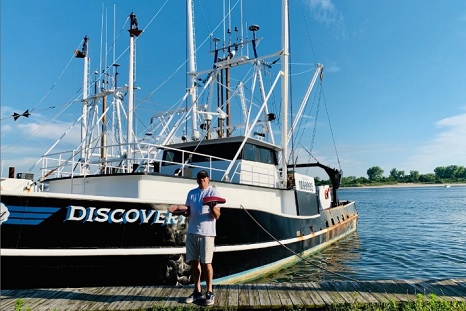
Jonathan Meyer a.k.a. JonnyFresh, has been in wholesale fish for 25 years. Now he’s bringing fresh catches to your doorstep.
Longtime veterans of the fish industry, including Marlboro resident Jonathan Meyer, saw their industry struggling to keep up. The businessman and entrepreneur, who has spent the last 25 years serving as a wholesaler for top distributors, suddenly found himself out of work. Yet, it was during the coronavirus pandemic that Meyer viewed an opportunity to reinvent himself and his business into a more intimate experience for customers. “At the beginning of Coronavirus , people were asking me for fish, ‘where can I get fish?’ You couldn’t get any groceries in April,” photos >click to read< 11:12
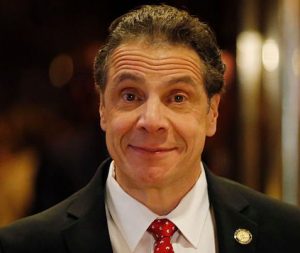
Success of NY Offshore Wind Industry Depends on Collaboration with Scallop Fishery – Who’s leaving because of Displacement?!
Governor Cuomo’s 2018 Offshore Wind Master Plan outlines steps for offshore wind development until 2030. A first-of-its-kind document in the 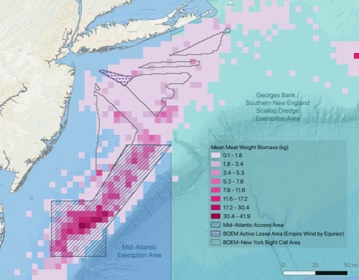 United States, the plan delineated a study area known as the New York Bight Call Area.. The NY-NJ Bight Call Area is valuable to the Atlantic sea scallop fishery, the largest wild scallop fishery in the world. In 2016, the scallop industry generated $486 million in landings revenue. As a point of comparison, the American lobster was the top species fished in 2016, with $667 million in landings revenue.,, fishermen are concerned that the potential displacement of fishing activity from the wind farms could increase competition for the same scallop resources in the NY-NJ Bight and drive smaller vessels out of business. >click to read< 16:45
United States, the plan delineated a study area known as the New York Bight Call Area.. The NY-NJ Bight Call Area is valuable to the Atlantic sea scallop fishery, the largest wild scallop fishery in the world. In 2016, the scallop industry generated $486 million in landings revenue. As a point of comparison, the American lobster was the top species fished in 2016, with $667 million in landings revenue.,, fishermen are concerned that the potential displacement of fishing activity from the wind farms could increase competition for the same scallop resources in the NY-NJ Bight and drive smaller vessels out of business. >click to read< 16:45
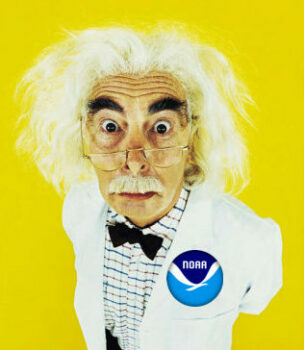
NOAA Cancels Three Northeast Research Surveys due to Coronavirus Uncertainties
Due to the uncertainties created by the Coronavirus/COVID-19 pandemic and the unique challenges those are creating for NOAA Fisheries, we are cancelling three research surveys off the Northeast United States. The cancelled surveys include those for sea scallop, Atlantic surfclam/ocean quahog, and an advanced technology survey investigating the ocean’s mesopelagic layer—the “twilight zone.” These are difficult decisions for the agency as we strive to balance our need to maintain core mission responsibilities with the realities and impacts of the current health crisis. >click to read< 20:42
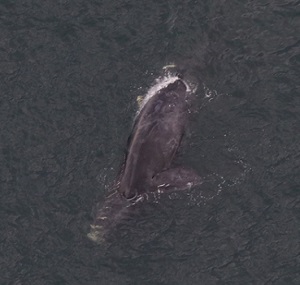
North Atlantic right whale – from Endangered to Critically Endangered
The International Union for Conservation of Nature (IUCN) announced Thursday it has changed the status of North Atlantic right whales on its Red List from endangered to critically endangered, IUCN’s highest risk category for wild species. This means the population has or will decrease by 80 per cent within three generations and is facing an extremely high risk of extinction. According to Canadian conservation group Oceana, at least 31 North Atlantic right whales have been killed since 2017 — 21 of them in Canadian waters. >click to read< 11:45
The International Union for Conservation of Nature changed its Red List Category for North Atlantic right whales from Endangered to Critically Endangered – >click to read<
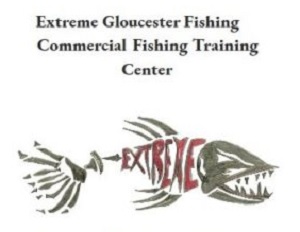
SURVEY: Please Help Extreme Gloucester Fishing: Restructure, Retool, Retrain, Revive and Reunite the U.S. Commercial Fisheries
Extreme Gloucester Fishing Commercial Industry Training Center is doing a U.S. Commercial Fisheries Survey – Please help Extreme Gloucester Fishing with our efforts to Restructure, Retool, Retrain, Revive and Reunite the U.S. Commercial Fisheries Take the Survey. 1. Do commercial fishermen care about their industry? 2. Should fish be owned before they are caught?, 3.,,, >click to read<, and please leave comments or suggestions, and connect with others to get things started! Thank you, Captain Joseph Sanfilippo 10:30
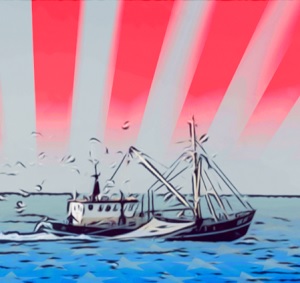
America Needs To Stop Relying On Countries Like China For Seafood Markets
When Americans visit a supermarket and wander past the meat counter, they see this century’s equivalent of the fishmonger’s stall: the seafood department. Laden over crushed ice in glass cases sits an array of fish products — whole snapper or shrimp, maybe, but almost always pre-sliced filets in a bevy of hues. Oysters and clams complete the display. In the rare cases where stores divulge the provenance of seafood, placards will often list Thailand, China or South American countries. Less frequently, however, will one see U.S-raised or caught seafood in such displays. This is disappointing to the patriot who wishes to ‘buy American.’ >clickto read< 07:00
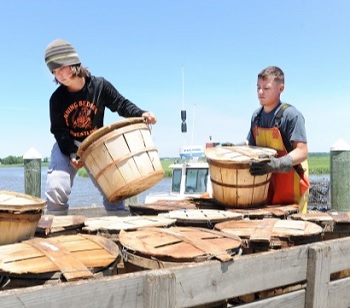
Delaware: Hungry for holiday crabs? Better get out the wallet – “best price that we’ve gotten for crabs in 26 years,,,”
This year’s crabbing season didn’t start out quite so hot for Smyrna’s Brian Hoffecker, Thankfully for Mr. Hoffecker, along with many other commercial crabbers in Delaware, things didn’t stay that cold for too long. With Independence Day coming up Saturday “This weekend is a holiday,” said Mr. Hoffecker. “I’ll tell you what, this will be my 26th year or something on my own (crabbing) and this is the best price that we’ve gotten for crabs in 26 years. I don’t know if it had anything to do with the coronavirus or with the restaurants being shut down,,, >click to read< 17:25
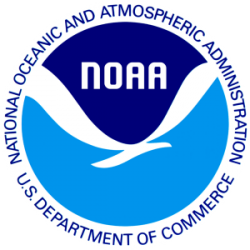
Re-Deploying Observers and At-Sea Monitors: Northeast Observer Waiver Extended Through July 31, 2020
Although we had announced plans to resume observer deployments on July 1, we recognize the Coronavirus pandemic continues to evolve and as such, has required us to re-evaluate and adapt to changing circumstances. In response, NOAA Fisheries is extending the waiver granted to vessels with Greater Atlantic Region fishing permits to carry human observers or at-sea monitors through July 31, 2020. This action is authorized by 50 CFR 648.11, which provides the Greater Atlantic Regional Administrator authority to waive observer requirements, and is also consistent with the criteria described in the agency’s emergency rule on observer waivers during the COVID-19 pandemic. >click to read< 16:00
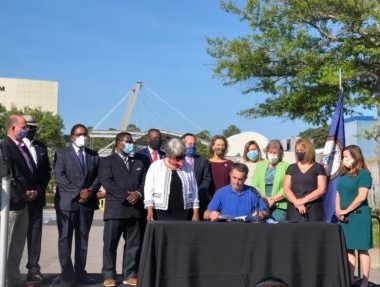
Dominion debuts first offshore wind farm in U.S. federal waters
Gov. Ralph Northam joined state and local officials, industry representatives and stakeholders Monday for a boat excursion 27 miles off the coast to take an up-close look at the massive turbines. Before embarking on the tour, Northam signed landmark offshore wind legislation during a ceremony in front of the Virginia Aquarium & Marine Science Center in Virginia Beach. He said the legislation will continue to position Virginia as a national leader in offshore wind development as the state builds a new industry with thousands of clean energy jobs. >click to read< 12:09

#FishermensLivesMatter: Until this pandemic is over, say no to fishery observers being placed on fishing vessels
On July 1st the Trump Administration’s agency, NOAA will require that fishing vessels resume taking fishery observers on their fishing trips. Due to the Coronavirus pandemic these activities have been suspended for almost three months due to the danger of spreading the deadly disease among the
fishing industry and their families. Fishery observers are required by National Marine Fishery Service regulations to observe commercial fishing operations in almost all of our countries fisheries based on various criteria that include likelihood of interaction with marine mammals or other protected species, amount of bycatch in each fishery, adherence to regulations, and anything else they can justify to support this huge taxpayer money gobbling con game they have created. >click to read< by Jim Lovgren #FishermensLivesMatter 22:27

An East Coast Perspective on Coronavirus Impacts
This was initially to be about how the New Jersey commercial fishing industry was coping with the coronavirus crisis. However, there is a seemingly infinite number of websites running commentaries on the national and/or international aspects of the ongoing pandemic in general and, surprisingly, as it specifically applies to and as it affects commercial fishing and the seafood industry. Considering this, sharing more than an overview of what the New Jersey industry, or at least that part of it that I have been in touch with, would probably not have much of an impact. But happily, at this point it seems that U.S. consumers aren’t really as averse to preparing quality seafood at home (when it isn’t available or is only limitedly available elsewhere) as most of us have believed. >click to read< By Nils Stolpe 12:05

Officials examining right whale found dead off N.J. – wounds are “consistent with a vessel collision”
The whale’s carcass was spotted floating in the ocean near Monmouth Beach at 12:15 p.m. Friday after first being seen a few miles south in the water off of Long Branch, according to a statement from NOAA.,, was working on a plan to tow it to shore so it could be examined and its cause of death could be determined by a team of investigators.A preliminary examination of the mammal showed several wounds along its head and body that are “consistent with a vessel collision,” however its official cause of death was still unknown, NOAA officials said. >click to read< 08:50
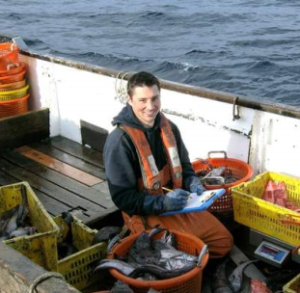
Coronavirus: LI fishermen concerned about restart of onboard monitoring program
Some fishermen in Montauk this week said they plan to refuse to allow the federally mandated observers and monitors to board their boats, given the resurgence of COVID-19 around the country and the uncertainty around potential infection from observers, some of whom are housed in Hampton Bays, once considered a Long Island hot spot for the virus. The federal agency ordering the resumption of monitoring said it has enacted a series of safety protocols to protect fishermen and observers, including requiring that observers quarantine for 14 days before the start of a fishing trip. >click to read< 17:14
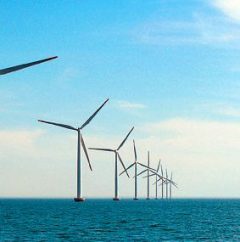
Displacement of fishermen? Offshore Wind Could Have Major Adverse Impact on Commercial Fisheries
The Bureau of Ocean Energy Management’s (BOEM) draft supplemental environmental review for Vineyard Wind off the coast of Martha’s Vineyard in Massachusetts indicates that offshore wind farms could have a major “adverse” impact on commercial fisheries.,, The study also notes concern that offshore wind turbines and transmission cables could entangle with fishing vessels and gear, and that wind farms could result in the temporary or permanent displacement of fishermen in certain areas. >click to read< 13:02
N E looks to Europe to assess environmental impacts of offshore energy facilities – “In the next 20 years there will be more than 2,000 wind turbines off the coastline,” “We think there’s lots of potential for environmental benefit of putting offshore aquaculture together with offshore renewable — from an environmental point of view, but also from an economic point of view,” she said. “Sharing space is going to be the only way I think we can move forward in this industry,,, >click to read<

Update on Fishery Observer Program Restart, Which Resumes July 1st
On May 29, NOAA Fisheries announced that on July 1, the waiver of fishery monitoring will expire, and we will begin deploying observers and at-sea monitors on vessels fishing in northeast fisheries. In a letter released today, Northeast Fisheries Science Center Director Jon Hare is providing an update on preparations for a safe and efficient redeployment. For more details and to download the letter, >click to read< 18:30
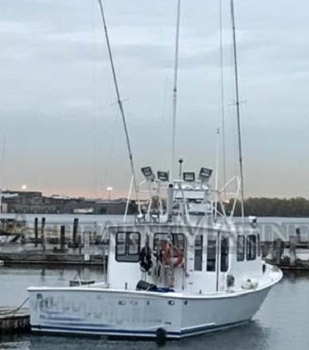
Athearn Marine Agency Boat of the Week: 36′ Fiberglass Wayne Beal Tuna/Charter boat, 485HP Scania Diesel, Entec-West 4 kw Generator
To review specifications, information and 41 photos, >click here< Vessel is in good condition. To see all the boats in this series, >click here<12:43
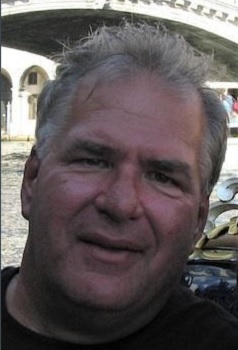
Richard R. “Capt. Rich” Dulski
Richard R. “Capt. Rich” Dulski, 58, of Brielle passed away on Wednesday, June 10, 2020 at Jersey Shore University Medical Center, Neptune. Rich was born and raised on Staten Island, NY. Rich took his boating captain’s license at the age of 17 and passed on the first time which is rare. He has been a captain for over 40 years working for the Gambler, F/V High Stakes, F/V Austin and, most recently, the F/V Amanda C, out of the Fishermen’s Dock Cooperative, Pt. Pleasant Beach. Rich has fished everywhere from Cape May to Montauk, L.I. to the Grand Banks. He is survived by his devoted wife Mary, daughter Elizabeth Dulski, two sons Richard and Michael, his Mother, and many relatives, and friends. >click to read< 20:36
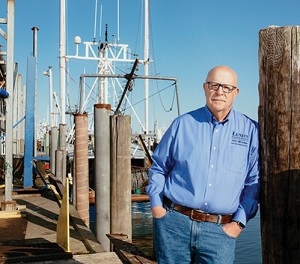
New Jersey’s Commercial Fishing Industry Struggles to Stay Afloat
In the wake of the pandemic, the industry—the fifth largest in the country—has been in rough waters. Will July and August bring relief? Atlantic Cape Fisheries, of which Sam Martin is chief operating officer, is a large commercial fishery as well as New Jersey’s largest producer of farmed oysters. “Last year we sold 2.5 million oysters, and we planned to sell 5 million this year, but sales so far are down about 80 percent compared to last year.” The bottleneck that Martin spoke of has throttled not only oystering, but New Jersey’s entire commercial fishing industry, “When I tell my boats to go fishing, I tell them, ‘Don’t bring in a lot,’” says David Tauro, general manager of the docks at the Belford Seafood Co-Op Belford, founded in 1953, is the smallest of New Jersey’s six commercial fisheries, but its pain is shared by the larger ones, such as Viking Village in Barnegat Light and Lund’s Fisheries in the state’s largest commercial fishing port, Cape May. >click to read< 17:53
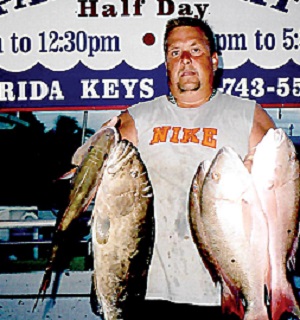
Commercial Fisherman Scott M. Boyce Sr., of Belford, New Jersey
Scott M. Boyce Sr., 61, a lifelong resident of Belford, passed away May 30 at home. Scott was born Oct. 26, 1958 in Red Bank, a son of the late Norma and George Boyce. Scott was a commercial fisherman with the Belford Seafood Co-op. He and his brother Brian owned and operated the fishing boat The Linda. Scott is survived by his devoted wife of 32 years, Ann Boyce, along with their son Scott Boyce Jr. Scott also leaves behind his brother and sister-in-law, Brian and Ronnie Boyce; nephews, Brian and Heron; and nieces, Lauren and Ivy. He was predeceased by his brother George Boyce. >click to read< 14:18







